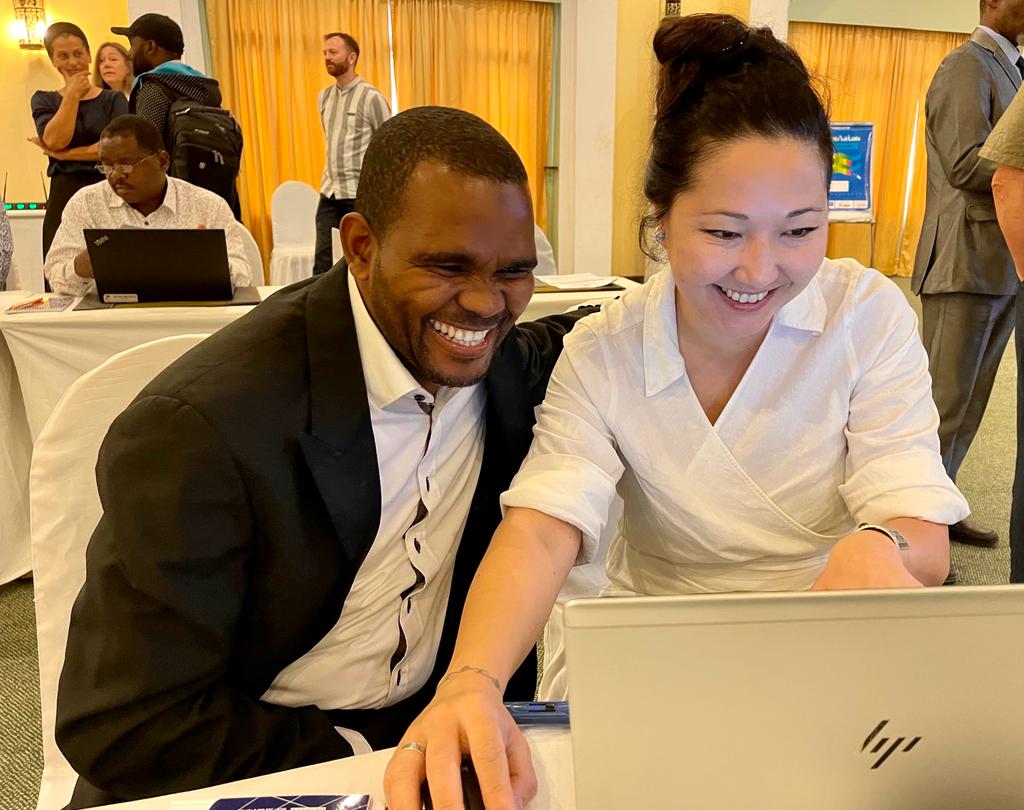Researching seagrass ecology and a sterling experience with a non-profit organization. A BSU story of change from State University of Zanzibar
12-01-24

RESUME: The State University of Zanzibar is doing research on conditions that affect environmental sustainability on the island with the support of the Building Stronger Universities programme. The research programme has two interconnected prongs, one looking into the health of marine life off-shore, the other studying mosquitos’ breeding grounds at hotels and how hotels dispose of their waste. In this story, the author is recalling how a meeting with the director of the Swizz NGO Marinecultures.org on the west coast of Unguja Island became the stepping stone for a joint publication between Århus University and the State University of Zanzibar in the esteemed journal Science Direct.
By Idrissa Hamad (Phd), Lecturer, State University of Zanzibar
The Jambiani coast in the southeast of Zanzibar’s Unguja Island has magnificent beaches that attract many visitors from around the world. Guesthouses and hotels lie like gems on a bracelet, vying for the best places along the alluring white sands.
Zanzibar is a semi-autonomous part of the United Republic of Tanzania. The archipelago consists of two major islands – Unguja and Pemba, and several small islets. Beyond the beaches lies the ocean with its wonderful gardens of seagrasses and beautiful coral reefs that contribute to making Zanzibar a unique tourist destination. Therein lies a serious dilemma, however, for although tourism is good for the local economy, it is not necessarily good for marine life.
I was in the first year of my PhD on seagrass ecology at Aarhus University. A scholarship at the State University of Zanzibar (SUZA) under the Building Stronger University (BSU) III partnership programme had enabled me to undertake further studies. My supervisor, Professor Peter Staehr, and I were in Jambiani and we had an appointment with Mr Christian Vaterlaus, the managing director of marinecultures.org, a non-profit organisation based on Zanzibar. Its headquarters are in Zurich, Switzerland. The organisation cultivates sponge and seaweed just off the coast. The purpose of the meeting was to talk about opportunities for cooperation in ecosystem monitoring between the BSU III Marine and Coastal Ecosystem Health and Services (MaCES) research initiatives and marinecultures.org.
Although this was our first meeting, it quickly became obvious that the organisation was one of our key stakeholders. We identified specific areas of collaboration, including the possibility of working with the problem of cyanobacteria that affect the sponge and coral reefs in the organisation’s marine farm. This was an area of intervention that we would not otherwise have been able monitor against the baseline data from BSU until a later stage.
The discussion was lively and the dialogue productive. Mr Christian Vaterlaus was curious about my PhD project and asked whether his organisation could be of any assistance to me. I told him about my research on seagrass ecology and that I was also using Jambiani as one of my study sites for data collection. This led to a process of sharing data, and between 2020 and 2021 I carried out four water quality data collection campaigns using marinecultures.org’s boat in Jambiani. Following our conversation, Mr Christian Vaterlaus helped us install one of our water temperature loggers at his farm and the resulting data were integrated as part of the pollution modeling paper High-resolution hydrodynamics of coral reefs and tracing of pollutants from hotel areas along the west coast of Unguja Island, Zanzibar that MaCES colleagues from Aarhus University and SUZA published in Science Direct
Edited by Kate Girvan
Go back to our stories